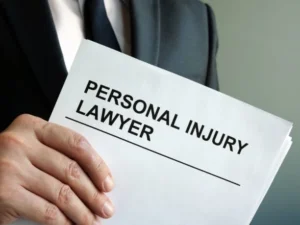Living with false accusations can be one of the most painful and distressing experiences. Whereas these actions can tear apart a person’s reputation and sow distrust in his or her job, mental breakdown is almost always near. Thus, knowing how to respond reasonably and legally is, and should, be of paramount importance. If you’re in turmoil trying to strategize your next course of action in case of false allegations, the following steps outline your action plan for protecting your rights, reputation, and future.
Unfortunately, cases of false allegations range from criminal law to work place accusations and they range from workplace complaints to criminal allegations. Understanding your range of options and acting swiftly but judiciously can be pivotal in cleansing your name and reclaiming your life.
Understanding False Allegations
False allegations are accusations that are either knowingly untrue or made with reckless disregard for the truth. False accusations can cover a range from petty offenses to the gravest accusations, which include theft, harassment, abuse, or fraud. False allegations can earn someone disciplinary action, job loss, arrest, or social stigma, whether big or small.
False allegations arise out of many motives: return abuse, misunderstandings, or manipulation. Even if the allegation is groundless, the accused faces a trial-and-error approach in proving his innocence. Hence it is very important to act immediately and know your rights under the law.
Types of False Allegations You May Face
False accusations may take many shapes; hence the response to such allegations differs, both legally and personally, depending on the nature of the accusation. Among common types of allegations Are:
- False accusations in the workplace- harassment, misconduct, insubordination
- Accusations pertaining to criminal matters involving assault, theft, domestic violence, or drugs
- Accusations in the civil arena, such as breach of contract or defamation
- Family law allegations in custody matters, such as child abuse or neglect
The more one understands the specific form of accusation, the more one will be able to develop the appropriate defensive strategy in relation to it.
What to Do Immediately After a False Allegation?
The immediate response in this scenario is to calm down and not be confrontational at all. Becoming emotional or attempting to confront your accuser may escalate the situation and could be used against you eventually. What you need to do instead is to collect and freely gather evidence that might support your position. This includes all relevant texts/messages, emails, statements from witnesses, or even video footage from surveillance cameras if this situation applies.
Further, make credible documents, which should include dates, seconds, locations, and conversations relating to the allegations. These details can then become very important and an asset to either your attorney, HR department, or law enforcement if things escalate. Your timely and generous preservation of evidence gives you a much better chance of resolving the issue in your favor.
What Can I Do If Someone Makes False Allegations at Work?
If falsely accused at work will directly endanger your professional reputation, even before an investigating agency finds any merit in them. This is why you should stay calm and follow your company’s complaints or disciplinary procedures as a guideline. You need to respond in a formal way and ask to receive a copy of the complaint, in writing.
Inform HR and ask for an impartial inquiry to take place. In the meantime, do not discuss anything with coworkers so that it does not appear as retaliation or gossip. Assuming there is no fair resolution in the workplace, you should consult a lawyer regarding the possible false accusations with which to protect your job while seeking potential damages for defamation or wrongful discipline.
Legal Rights If You’re Falsely Accused
If you find that you are falsely accused, whether in civil, criminal, or employment-related matters, you have to take legal help for false accusations, including the presumption of your innocence, the right to engage legal defense, and the right to remain silent while being investigated by law enforcement. No obligation exists for you to prove your innocence; the accuser must bear the burden of proof.
In civil and employment-related contexts, you are entitled to be forewarned of the charges against you, formally respond to all of them, and request possible mediation or arbitration. Depending on the strength of your case, your attorney may also advise you to counter sue for defamation, mental distress, or lost income.
Should You Hire a Lawyer?
In most cases you should hire a lawyer especially if you are being accused falsely. An experienced attorney would help deal with the intricacies of the complicated legal system, provide a sturdy defense, as well as safeguard an individual from unnecessary incriminating declarations. If a person’s job would be on the line because of an allegation, could lead to significant prison time, or tarnish his reputation, a lawyer becomes even more necessary.
He or she would be able to give advice as to whether or not the accusations constitute defamation or harassment and advice on how to seek damages if they do. They are trained to respond strategically and ascertain that the side of the story gets to be presented with credibility and legal backing.
Also it is possible to control the aspects of public relations with the help of a lawyer as the employee will know what to say or not to say publicly or through social media. On cases of high stakes, a slight slip-up concerning the words used in front of the people may be costly. The attorney will see to it that each of your moves is in your long-term best interest.
How to Prove the Allegations Are False
The truth about the allegation is almost always not easy to establish since usually either party has very little evidence. However, a number of proactive and full measures can be taken to prevent this from happening.
Here are some ways to prove the allegations false:
- Collect documentary evidence: Emails, texts, reports, or timestamps that contradict the claims Gather witness testimony:
- Statements from people who can vouch for your behavior
- Security footage or location data: This can disprove presence or involvement
- Past interactions: Proving the accuser has a motive or history of dishonesty .
Ultimately, the purpose is to establish a factual chronology of events and to demonstrate how claims against you fail to carry any credibility, and indeed have the quality of being false.
Protecting Your Reputation and Job
Being falsely accused-worse still, when the accusations are false ones made against you in your place of work-usually does great harm to one’s reputation long before the card is put into play. Being proactive with damage control doesn’t have to be expensive across-the-board.
Pay a visit to the HR department and request that the investigation remains confidential. You might also want to seek out a defamation attorney if your reputation has been tarnished publicly or over online. If acquitted, demand a formal letter from your employer clearing your name and removing related disciplinary.
When to Report False Allegations to Authorities?
If the false allegation has serious consequences, such as loss of work, incarceration, or public humiliation, it should now be reported to a legal authority. Filing a police report false accusations may lead to criminal charges against the accuser, especially when it is shown that the accused intended to harm or deceive.
The accuser may even find liability under perjury, filing a police report, or harassment-all criminal charges. An attorney can help assess the right time and method of escalating the issue. Reporting can also prevent that person from making similar accusations against someone else in the future.
Conclusion
As with being falsely accused, one goes through a terrifying experience. But it is one thing starting and another experiencing the trauma alone. Workplace or personal adulterations aside, you should know what to do if falsely accused. Hiring a lawyer; gathering evidence; critically protecting your reputation in the social arena are all actions a human being can take and may vary the end outcome.
If looking to see whether one is indeed facing false accusations at work, or any other place, speed is of top priority; learn your rights and the options available; get legal help for false accusations to allow your side to be heard and your future to be protected. Injury can be meted out on false claims, but they ought not to characterize you with the right steps taken.





